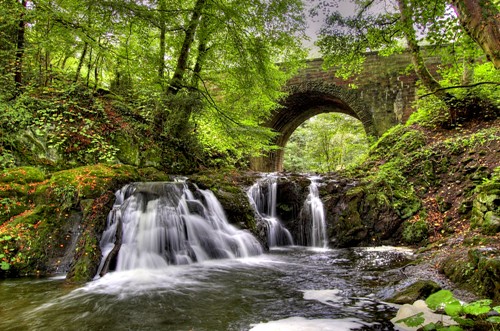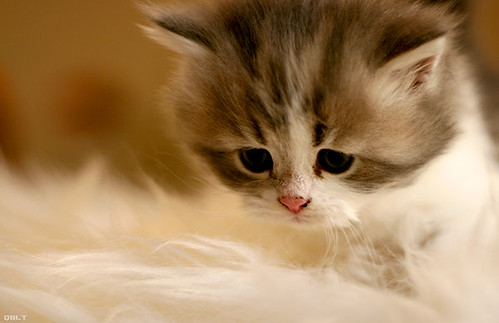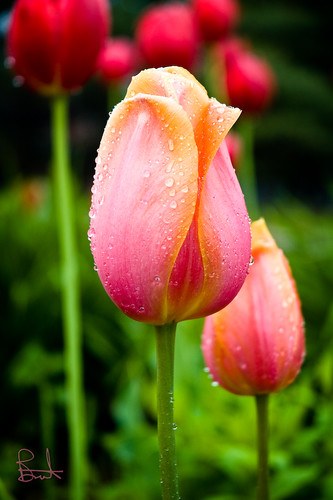International Ataturk Alatoo University
Bishkek, Kyrgyzstan
Kyrgyz people are restless in the springtime. As the saying goes, spring is the best time for cleaning and the Kyrgyz people have cleaned out their president, all done and dusted in one day.
7 April 2010
Morning
News began to spread that the previous evening a mass demonstration had taken place in the town of Talas whereby citizens attacked the police and there were casualties on both sides. Before lunch Prime Minister held a press conference whereby according to Kabar, the Kyrgyz National Informational Agency, he stated: "Presently, the town's central square is cleaning from a pogrom -stones and garbage. The regional administration's building seriously damaged. By 14:00 o'clock the administration's work will be restored.... The last group of rioters dispersed at three o'clock in the morning. The fourth seize of administrative building did not take place. It was planned for 5 o'clock in the morning. Now, the situation in Kyrgyzstan is normal".
In fact at lunchtime all seemed normal; there was a slight wind with a few drops of rain, just an overcast spring day. People were doing their everyday shopping getting on with their lives, having lunch etc.
Afternoon
Around 1.30 near Osh bazaar people were walking toward the city centre and the Presidential Palace. Trolleybuses had been stopped on major intersections such as Kiev and Sverdlov streets making access impossible. People were marching and asking others nearby to join them. Most of the crowd that had gathered near the centre were passive and nervous and were unwilling to join the agitators. Around this time ambulances were being requisitioned or in some cases overturned.
In a short space of time more and more people, mostly Osh bazaar workers began in droves walking to the Presidential Palace. One UN agency located on Sverdlov Street was evacuating its office and their personnel were hurriedly carrying their computers to the awaiting cars. Passers-by on the way to the centre saw this and jumped to the conclusion that international organisations had much to hide from the Kyrgyz people. It was a most unfortunate encounter.
Thousands of people began marching to the city centre towards the presidential palace. Loud whistles were accompanying the marchers with slogans being periodically heard with primarily the political party flag of Ak Shumkar in light blue being waved. Women and even small children could be seen walking together. All the children were trying to get home from school but the public transport system had completely collapsed. All the shops shut down. Under the spring rain cars were burning.
By 2pm in the centre no damage was observed, though there was apprehension and a sense of waiting for things to happen. Around 4.30 people began to talk of a curfew had been imposed in Bishkek. People would be restricted from 22:00 p.m. till 6:00 am in the capital and everyone should carry passports and documents that certified who they were. The curfew was imposed because of the state of emergency.
By 5 pm blood on the pavements became noticeable, roughly 50 metres from the Presidential Palace, especially between Panfilov and Kiev streets, at that intersection concrete blocks had been laid on the roads to make them impassable to vehicles. A separate crowd was assembling near the Ministry of Defence. A rumour began to circulate that the Kazaks had closed down the border, which is a half-hour drive from the city centre of Bishkek. There is apprehension and suspense in the air. An expectation of change, of better times ahead. Equally there was fear, as gunshots were becoming even more regular in the city centre.
Walking on Chui Prospect I noticed the windows of the Turkish-owned Beta Stores shopping had been smashed. There was no damage just three hours earlier.
At the corner of the Presidential Palace and the main Ala-Too square a blue minivan was set
on fire, within the compounds of the PP. Its flames were burning brightly and the smoke could be seen from quite far away as one walked toward the centre. Just outside of the gates outside the presidential palace, next to a burning military vehicle a white civilian car was also set alight. Inside the gates of the presidential palace riot police were standing ready, row after row, facing an increasingly impatient crowd assembling around the end of Logvinenko Street.
In this part of the city there was a strange aroma, smelling very much like gas. It had been reported that tear gas had been fired to disperse the crowds. Amidst the howling and disorganisation I saw several ambulances, with their sirens blaring speedily travelling along the main streets.
Many people were standing idly by listening to the sirens and gunfire opposite the Presidential Palace. Most of the time the gunfire indicated that small arms were being used, with single shots being fired in rapid succession. Despite guns being used there was no panic in the crowd, probably because the targets were in the main square.
Only three blocks away from the main square, minibuses had started working and the streets were fairly calm, with a few people walking to and fro. Some shops had tentatively opened so that people could buy necessities such as bread.
The rain had stopped but it was still cool on the streets. Many men were drinking vodka in apartment entrances and the smell of alcohol could be detected among certain sections in the crowd.
In and around the streets surrounding the central Ala-Too square and the presidential palace there was an uneasy calm around 6 pm. Although expectations were quite high, there was no noticeable activism in the crowd. Most were young men and they were remaining quite passive. Some had mounted cars and were waving the national flag; others were trying to make speeches, but could not be heard through the murmurs of the crowd.
In the late afternoon, a large crowd began to march away from the city centre toward Osh Bazaar and the headquarters of the state television channel KTR. This was the reverse of what had taken place a few hours earlier, now the target was not the centre of political power but of the centre of telecommunication. State television was being constantly interrupted; live speeches of opposition leaders are being cut as well as periodic interruptions to mobile telephone networks.
Rumours abounded that demonstrators had broken into an arms depot and taken pistols and rifles and begun disseminating them.
Evening
As the rain stopped and darkness descended around 7pm on KTR the opposition had begun to broadcast. The whole nation watched a protestor wanting to talk to riot police defending the PP. He was shown taking of all his clothes above his waist at the gates, probably due to fear he might have a bomb strapped to him. Despite the fact that shots had been fired and were still being fired there was someone who wanted to negotiate, to start a dialogue. KTR showed terrible scenes, people kicking a soldier lying in the mud, as he curled up into a ball trying to protect himself.
Between Chui Prospect and Panfilov Street pools of blood and dirty clothes were seen on the ground. Ordinary people were being carried away lifted by their arms and legs, covered in blood in the main square by the fountains, amidst gunfire and a large crowd surrounding the square.
During the continuous broadcast multiple written and oral announcements asking for blood to be donated for the protestors were made as many patients were desperately in need of blood transfusions. A father was asking for blood as his son had been killed by sniper. He expressly appealed to all ethnicities, whether Uzbek, Kyrgyz or Russian to donate blood urgently.
Water cannons were being used in the main square and one could see the demonstrators soaked, running away from the vehicles. Tear gas was being fired into the crowd on Ala-too square, with multiple rounds also being fired by the Army and police, which were responded to by stones from the demonstrators. Police were carrying a fellow officer who was injured to safety and then retreating rapidly as they were being chased by the crowd. The police were running by the side of the independence monument in front of the national history museum retreating towards parliament.
The scenes in front of the presidential Palace was bizarre, verging on the comical as clearly overweight middle aged army officers were walking huddled with their subordinates protecting themselves with police riot shields. They were unarmed and had only batons. As they were met with a shower of stones some soldiers were picking up the same stones and hurling them back at the crowd. They were clearly inexperienced and untrained in handling such a situation. When advancing into the crowd some of the officers were grabbing hold of individuals who had stoned them and began to beat them with sticks and batons. From the television screen one could see the violence in their eyes, their pupils dilated with hate.
By the national history museum, two soldiers standing on ceremonial guard duty next to the huge flagpole were manhandled by the crowd. Their rifles were taken off them and passed off to others in the crowd. After which in another segment rounds of machine gun bullets were individually shared amongst those gathered after which half a dozen or so demonstrators showed off their semi-automatic weapons by raising them above their heads. One cannot be sure but they looked very similar to Kalashnikovs.
The storming of the KTR television channel was also very informative. The crowd had approached the steps of the building and were hurling stones into the windows and after all of them had come smashing down they continued to throw stones far into the entrance. A police officer was manhandled and brought out into the entrance. He was trying to speak but a few demonstrators were constantly harassing him. They forced him to take off his overcoat so he was standing in his uniform. Someone ripped off his epaulets which provided the crowd with an incident to cheer. He was forced to wave the blue Ak-Shumker flag which again received much cheer. It was clear to see that the crowd were dividing into a section which was more restrained and trying to control events and another section which was intent on creating as much disturbance and damage as possible.
In the evening between 7-8 pm loud explosions were heard from the vicinity of the presidential palace. They were probably used to disperse the crowds who had remained there since the early afternoon.
On KTR around 8.45 pm the leaders of the opposition were calling for calm, asking the
demonstrators to not steal, loot, raid and break the law. They were asking for people to not to go on the rampage as this would give the president a legitimate excuse to crack down on the opposition.
Soldiers around the Presidential Palace were firing into the crowd; these were real bullets not rubber bullets. It was the snipers who were doing the shooting, being located on the roof of the Presidential Palace. Rumours began to circulate that at midnight all the borders would be open, the Kazakh to the north and the Uzbek to the south.
There was a pregnancy in the air in Bishkek in the evening. Walking amongst the demonstrators it was unclear who they had in mind to replace the president. They were united in opposing the leadership but divided on his replacement. Hence it was difficult to predict what future developments would be. Whether the crowd would disperse, or whether more radical elements would be able to convince and inspire the masses to take more direct action.
Night
Despite the fact that a curfew was to be imposed at 10 pm people were still on the streets and the demonstrators of the day turned into rioters of the night. All commercial enterprises were targeted. Any shop with a window was at risk and a vast majority of them were broken into and looted. The demonstrators seized the opportunity of all security forces being tied up at the Presidential palace to go on the rampage. At midnight I saw women with bags of eggs walking to their homes. Violence erupted among people who were asking people to refrain from looting. Cars stopped and joined the violence. Many cars were seen on the streets, looting one shop and carrying their bounty home. Naturally, the streets became littered with bottles of beer and vodka. Practically anyone who was out late at night was carrying home a very heavy plastic bag. Others had gone a step further. They had taken shopping trolleys and filled it to overflowing with all types of foodstuffs. Four men were carrying a soft drinks company refrigerator, ovens were being stolen, television sets carried off as well as all sorts of clothes. Whatever could be carried was stolen until the morning.
Just before midnight former minister of foreign affairs Zhekshenkulov talking live on television stated that President Bakiyev had fled the country. Just after midnight the leader of the Ak-Shumkar party Temir Sariev said that Prime Minister Usenov had resigned. He added that according to his sources, Usenov and Roza Otunbaeva were in the Government House and the premier had signed a formal letter of resignation.
Throughout the night KTR is broadcasting the damage done to all commercial enterprises. Phone text messages are also being shown as a subtitle with the senders asking for help in particular regions of the city. Some parts are letting people know that there is calm there whereas others are asking for assistance in maintaining security for their shops.
8 April 2010
Morning
Bishkek awake to a fine sunny spring day with the birds singing and the refuse collectors taking the trash and trying to clean up the mess on the roads and pavements. Minibuses and buses were working and people were shocked at the level and extent of the looting that had taken place only a few hours before. There is glass everywhere. There is major damage to many businesses, nearly all shopping centres have been cleaned out and gutted. Whilst travelling on public transport ordinary people are shocked at what they see.
I am reminded of five years ago when the previous president was toppled by a popular uprising. In March 2005, Bishkek had witnessed terrible looting and a citywide rampage. That has been repeated today. It is difficult to walk without hearing the crunch of broken glass under your shoes.
Outside the Presidential Palace I noticed again a crowd, perhaps they are the same as yesterday or maybe they are new faces. Despite the weather being fine and sunny in the area around the presidential Palace it is raining. It is raining paper. From the upper floor windows people are throwing stacks of documents which are floating towards Logvinenko Street. This intersection has become a tourist attraction as families are walking to catch a glimpse of the burning Presidential Palace. They look on for a few minutes and leave, being replaced by other Bishkek dwellers.
Outside of the prosecutors headquarters one sees a completely burnt out building. On the pavement there are multitudes of files and documents scattered across a wide area. Equally I notice several discs, perhaps containing vital information that has been thrown out of the windows which now lie beneath our feet.
Just before 11 oclock a meeting of what is termed the temporary government began in Parliament. According to Kabar, Omurbek Tekebaev, Roza Otunbaeva, Damira Niazalieva, Kanybek Imanaliev, Isa Omurkulov, Emil Kaptagaev, Azimbek Beknazarov, Ismail Isakov and Elmira Ibraimova were amongst those who attended the meeting.
Otunbayeva declared that Parliament, of which she is a member will be dissolved.
According to her all legislative functions will be taken up by the new government with all the powers of the President and the government being transferred to the interim government. During a press conference held after lunch, Otunbaeva speaking as head of the temporary government said that families of the deceased and victims of the previous night would be compensated. She also announced that the temporary government will work for 6 months. During this time a new Constitution will be drawn up and put to the people in a referendum. Furthermore, the activity of the Central Electoral Commission would be suspended until the adoption of a new Election Code and new legislation concerning political parties and demonstrations would also be instigated.
Afternoon
As people are getting used to the fact that today is a new day with a new temporary government they are also having to get used to a new uncertainty, one which is not related to politics. Many people are finding out, much to their distaste, that their workplace is no more. Where they worked yesterday is either damaged beyond repair, or completely bare, or both. To illustrate this point let me mention my neighbour who is an accountant. Divorced with two children she found out that the office she works in has been completely gutted. Even the cable extensions in the office have been stolen. She was not expecting to find windows, but even the cheap office curtains have been taken. One can unfortunately multiply these examples many fold. Quite a few people are thinking of where and how they will work and how they will be able to feed their families.
Analysis
It is perhaps not so difficult to understand why the opposition leaders agreed to dissolve parliament. In practical terms, parliament is controlled by members of Bakievs political party Ak-Jol who form a comfortable majority. No one can say that the demonstrators were protesting parliament as an institution, or individual MPs. Reading what has been sprayed on the walls of the city centre, I did not come across any that did not mention Bakiev. This is indicative of the personal nature of the protest. It was totally directed against Bakiev, the person. I saw many proverbial writings on the wall around and in the city centre associating Bakievs name with profanities and asking him to go, just as they had said and written about his predecessor. I saw nothing complaining about his political party nor parliament nor the political system.
Many analysts are wondering what the immediate causes for explaining the uprising was. The simmering reasons were undoubtedly rising utility bills. KTR interviewed an elderly rural lady from Kochkor on Wednesday who bitterly complained of the rise in electricity prices and how tough it was making her life, not being able to feed her family. The rise in utility bills which began in January also unduly affected the less well off. This issue does deserve a little more detail.
The government announced that homes above a certain size (80 m2) would be subject to a much higher tariff. Ordinarily in Western Europe or North America this would be considered reasonable: those who are living in mansions or large homes should pay more for their heating and light etc. Though the situation in a post-soviet country such as Kyrgyzstan is quite different. Many people inherited houses, rather than apartments in Bishkek and around the country, when the Soviet Union collapsed. These were over the 80 m2 limit identified by the new tariff. Those living in such relatively large houses were certainly not rich and could barely keep themselves above the poverty line, but when the new bills started to arrive they suffered disproportionately than the rest of the population.
Another simmering reason was the fear expressed in late summer that in the autumn power shortages would once again occur. During the autumn of 2009 power cuts lasting six hours every day were endured and the worry was that this would once again have to be endured. Such expectations did not endear the president to the electorate.
Perhaps a major factor which affected so many people to demonstrate and contemplate violence was the level of corruption. Russian Premier Putin aptly pointed out that Bakiev had gained power due to correctly accusing the president at the time, Askar Akaev and his family, of being corrupt. He noted the irony that president Bakiev was being accused of the same infidelity. Whether true or not, a large proportion of the masses believed that the presidents son, Maxim had a finger in all the lucrative businesses in the country. No contract, no deal, no investment could go through without Maxims consent. It was believed his consent could only be sought in U.S. dollars. His excessive lifestyle treaded the rumour mills on a regular basis and this created a particularly bad taste in the mouths of people who had difficulty putting food on their familys dining tables.
Needless to say, the global financial crisis that has engulfed the world since the autumn of 2009 has also affected the Kyrgyz Republic. The particular manner the Kyrgyz people were hurt by the crisis centred on remittances. A huge proportion of the Kyrgyz national budget depended and still relies on remittances sent from the Russian Federation. The IMF declared in 2009 that the current account deficit is expected to remain high [due to] a drop in exports and remittances. Most sources place remittances as accounting for up to a third of the state budget, hence any sizeable drop in them would seriously affect the governments finances.
A popular explanation revolves around criminality. One cannot apportion blame to the criminal gangs for the uprising. As strange as it may sound, they have been a part of the political scene for a number of years and stretch back into the Akaev era. Political power has been transformed into economic power through the wilful misuse of official positions. The political elite has steadfastly ensured it also rapidly becomes the economic elite. This was precisely what Bakiev and Kulov had criticised, but thanks to his son Maxim, president Bakiev could not look people straight in the eye when complaining about nepotism and corruption.
In fact there are rumours circulating in Bishkek now that some shopping centres and department stores that were not looted, that escaped the violence precisely because they made arrangements with the criminal elements in Bishkek who supplied them with armed security. What does this mean then? Entrepreneurs are having to make deals with undesirables to secure their legitimate workplaces; an unholy alliance of the legal with the illegal.
In lieu of a conclusion, today the opposition at a stroke has removed a barrier that as they see it would hamper them in their path., basically kill off parliament. At the end of the day, yesterday Kyrgyzstan had a constitution, president and a functioning parliament and calm. Today, the president though in hiding is adamant that he has not officially resigned and restating the fact that he is the legitimate president of the republic, parliament has been dissolved; a new temporary government claims the right to rule for the next six months, the present constitution is deemed unsatisfactory and a new one will be written alongside a new political framework. Gunfire can be heard as the night falls in or around Osh bazaar and the Kyrgyz nation awaits an uneasy future with trepidation. It has been the longest 24 hours in everybodys lives and its repercussions will unfold not in days, but probably weeks or months.
.








 Dr. Sureyya Yigit
Dr. Sureyya Yigit